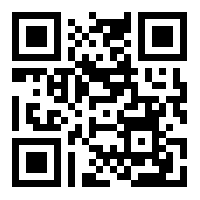An investigation into the effects of demonstration instruction strategy (DIS) on senior secondary school students’ Mathematics achievement in Afijio Local Government, Oyo State, Nigeria
##plugins.themes.bootstrap3.article.main##
Abstract
The study investigated the effects of demonstration instruction strategy on senior secondary school students Mathematics achievement. The study employed a quasi experimental design, specifically the pretest-posttest non equivalent group design. Population of the study consisted of students in Senior Secondary Schools Students in Afijio Local Government Area of Oyo State. One hundred (100) students which comprised of male and female were selected from the Senior Secondary School one students. The instruments used were “Questionnaire on Effects of Demonstration Instructional Strategy on Students Academic Achievement in Mathematics (QEDISSAAM) and Mathematics Achievement Test (MAT). The instruments were validated by experts in the field of test and measurement. Three hypotheses were tested. Data were analyzed using ANOVA. The results revealed that students taught using Demonstration Instruction Strategy methods performed better than students taught using primitive material. It was revealed that male students did not perform better than their female counterparts in Mathematics. The study also revealed that rural students performed better than urban students in Mathematics. Based on the results, it was recommended among others that teaching of Mathematics in schools should be conducted in a manner that students will effectively learn and understand any mathematical concepts taught.
##plugins.themes.bootstrap3.displayStats.downloads##
##plugins.themes.bootstrap3.article.details##
This work is licensed under a Creative Commons Attribution-NonCommercial-ShareAlike 4.0 International License.
This open-access article is distributed under a Creative Commons Attribution (CC-BY) 4.0 license.
You are free to: Share — copy and redistribute the material in any medium or format. Adapt — remix, transform, and build upon the material for any purpose, even commercially. The licensor cannot revoke these freedoms as long as you follow the license terms.
Under the following terms: Attribution — You must give appropriate credit, provide a link to the license, and indicate if changes were made. You may do so in any reasonable manner, but not in any way that suggests the licensor endorses you or your use.
No additional restrictions: You may not apply legal terms or technological measures that legally restrict others from doing anything the license permits.
How to Cite
References
Agomuoh, P. C., & Nzewi, U. M. (2013). Impact of demonstration instructional on secondary school students’ achievement in Mathematics. Journal of the Science Teachers Association of Nigeria 38 (2), 88-93.
Ahmed, K. (2010). Obstacles to the effective teaching and learning of chemistry at the secondary school level: Curriculum Implications for Sustainable Educational Development. 43rd Annual Conference of Science Teachers’ Association of Nigeria (STAN). 13(9), 539 –542.
Ajaga, G. A. (2016). Towards performance in science education. In Maduewesi (Ed.) Nigerian Journal of Teacher Education & Teaching, 2(1), 11 –125.
Ayodele, T. O. (2015). Predicting students ‘performance in Junior Secondary Certificate Examination, in Ondo State, Nigeria. Humanity and Mathematics Sciences Journals 3 (1), 26-36.
Babajide, V. F. T. (2010). Generative and predictive-observe-explain instructional strategies as determinants of senior secondary school students’ achievement and practical skills in practical. Unpublished Ph.D Thesis , University of Nigeria, Nsukka.
Emeke E. A., & Odetoyinbo, B. B. (2003). Teacher factors as determinants of achievement in integrated science. Journal of STAN, 38(182), 94-99.
Eze, M. A. (2003). The Effects of The 5E Learning Cycle Model on Students‘ Understanding of Force and Motion concepts. Unpublished M. Ed Thesis University of Central Florida, Orlando: Florida.
Hall, J. F. (2010). Practical biological science for west african schools and colleges. Ibadan: University Press Plc.
John, D. K. (2010). Functionality of the teaching of secondary school mathematics in a period of global depression: strategies for salvage. Ibadan: TDE publisher
Miriogu, C. A. (2012). Impact of demonstration instructional strategy on students’ achievement and retention in mole concept. Unpublished Ph.D thesis, University of Nigerian Nsukka.
Musek, K. R. (2001). Prentice hall mathematics. New Jersey, U.S.A: Pearson Education Inc.
Nwagbo, C. R. (2009). Enriching senior secondary school mathematics through integrating entrepreneurship activities. 50th Annual Proceedings of Science Teachers’ Association of Nigeria (STAN). 128 – 133.
Nzeribe, A. A. (2012). Teachers’ understanding of mathematics curriculum content and requirement Practices. Journal of the Science Teachers’ Association of Nigeria 33 (1 & 2), 78 – 83.
Olumorin, B. M. (2004). An Investigation of teachers’ instructional problems in sciences. Benin Journal of Education, 11(3), 43-54.
Tajudeen, A. (2003). Motivation and academic achievement in education mathematics economic growth. Retrieved September 1, 2015 from listsurge.com.
Williams, I. T. (2004). The environment and learning college of education. University of Oregun U.S.A. Press Ltd.


